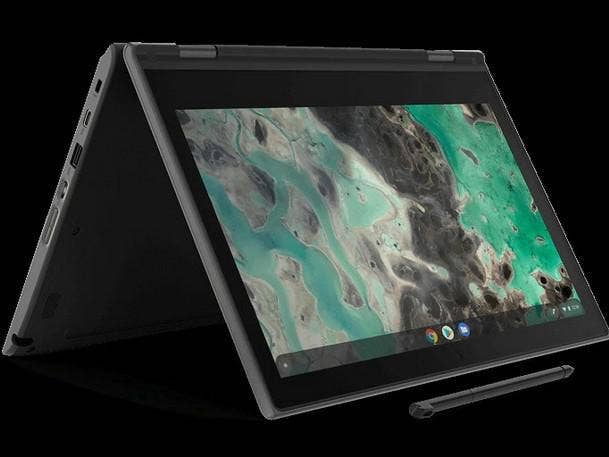Lenovo Opts Against ‘Retroactive’ Chromebook Pricing Increase
As component costs escalate, the PC maker had been considering a measure that would’ve led to higher prices for school districts on previously placed Chromebook orders. But ultimately, ‘we were able to confirm for our partner community that for the current, existing customer orders, we intend to fulfill that existing backlog,’ a Lenovo executive told CRN.

Lenovo this month considered making an unusual pricing adjustment on existing orders of in-demand Chromebooks but ultimately decided against the change, easing concerns raised by some partners that are still trying to equip schools with the student-friendly devices.
Under that possible scenario, any Chromebook orders not shipped by March 31 would have been cancelled, and customers that still wanted the systems would have needed to re-order the units at higher prices, according to solution provider executives and documents viewed by CRN.
However, Lenovo informed partners this week that it does not plan to implement this idea, solution providers said.
[Related: PC Demand Expected To Continue Surging In 2021: IDC]
“Some of our orders are almost a year old, so that would have been difficult news to pass along to an already frustrated client,” said an executive at a solution provider focused on K-12 education, who asked to not be identified. “A retroactive price increase on an existing order would have been an unprecedented move and something we haven’t seen before with other manufacturers.”
Earlier this week, another solution provider executive told CRN that school district customers “who have already suffered quite a bit these last nine months, are going to suffer more” if the retroactive price increase were to go through.
Implementing that pricing scenario would’ve also worsened the “substantial damage to our reputation” that the solution provider has experienced due to the long waits for fulfillment of Chromebook orders, the executive said. “Some of these orders are really old—from September and October.”
In an interview with CRN, Wendy Welch, executive director of U.S. distribution and VAR sales for Lenovo’s Intelligent Devices Group, said that “we intend to fulfill that existing backlog” at the original pricing for Chromebook orders.
On March 2, Lenovo held a call with partners focused on the education vertical to announce that prices would be increased for all new orders of Chromebooks going forward due to increased component costs, Welch said.
On that same call, Lenovo told partners that it “needed to assess” whether it could honor existing orders at the orginal pricing, Welch said.
Lenovo “provided an FAQ document for our partners that laid out that we needed that additional time in March to complete that assessment,” Welch said.
Ultimately, “this week we were able to confirm for our partner community that for the current, existing customer orders, we intend to fulfill that existing backlog,” Welch said in the interview with CRN on Thursday.
Lenovo, based in Hong Kong with U.S. headquarters in Morrisville, N.C., has seen massive demand for Chromebooks from school districts amid the continuance of widespread remote learning. And the heightened demand “does not appear to be abating,” Welch said.
While Lenovo substantially ramped up its manufacturing capacity last year, a range of supply chain shortages are now constraining the production of Chromebooks, she said.
“The increased demand from the pandemic, coupled with component shortages, are contributing to that extended backlog,” Welch said.
Meanwhile, the escalating costs for those components can no longer be absorbed by Lenovo and are requiring price increases for Chromebooks, she said.
“At this point, every component that’s going into building and shipping a PC has been impacted by cost increase—displays, processors, memory, storage, raw materials—all the way through to logistics and freight,” Welch said. “So it is not any one component that’s driving that.”
Lenovo is raising prices for both Intel- and AMD-based Chromebooks, solution providers said. Lenovo declined to comment on whether Intel and AMD costs are increasing at similar rates.
While it’s difficult to project when the Chromebook backlog could be fulfilled—especially with the “fluid” supply chain situation—Lenovo is “actively working through finding that balance in the supply,” Welch said. “Our priority remains getting devices into the hands of the students.”